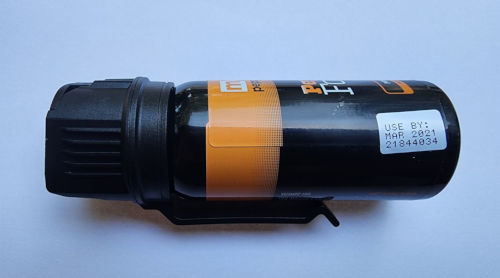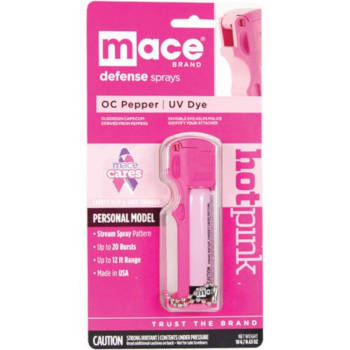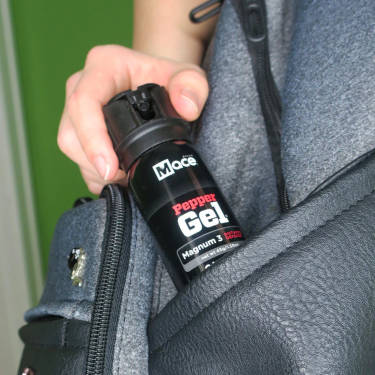How Long Does Pepper Spray Last?

Pepper spray is a powerful self-defense tool, but it doesn’t last forever. Whether you own a canister for personal safety or security purposes, it’s important to understand its expiration date, effectiveness, and storage requirements to ensure it works when you need it most.
⏳ Pepper Spray Shelf Life: Does It Expire?
Most pepper sprays have a shelf life of 2 to 5 years, depending on the brand and formulation. Over time, the propellant inside can lose pressure, making the spray less effective.

Example of Expired Pepper Spray
How to Check If Your Pepper Spray Is Still Good
✔ Look for an expiration date – Usually printed on the canister.
✔ Test your spray – A brief spray (outdoors, downwind) can confirm it still works.
✔ Check for leaks or clogs – A damaged canister may not function properly.
♦ TBOTECH Solution: Shop Fresh & Reliable Pepper Sprays
How Long Do the Effects of Pepper Spray Last?
When deployed, pepper spray causes intense burning, temporary blindness, and breathing discomfort. The effects typically last:
✔ On skin & eyes: 30 to 60 minutes
✔ In the air: Up to 30 minutes, depending on ventilation
✔ On surfaces & clothing: Several hours to days
Pepper Spray has a Shelf Life
✦ Pro Tip: If exposed, rinse with cold water and mild soap. Avoid rubbing the affected area.
Proper Storage & Maintenance for Maximum Effectiveness
To ensure your pepper spray remains potent:
✔ Store at room temperature – Extreme heat or cold can degrade it.
✔ Avoid leaving it in a car – High heat can cause leaks, and freezing temperatures can reduce effectiveness.
✔ Replace it before expiration – Even if unused, an expired canister may not function properly.
♦ TBOTECH Solution: Find the Best Long-Lasting Pepper Sprays
Mace Brand Pepper Gel Carried in Bag
⚠️ Can You Use Expired Pepper Spray?
Expired pepper spray may still work, but the range, pressure, and potency can be unreliable. For safety, replace expired canisters regularly.
✔ Emergency use: It might work in a pinch, but don’t rely on it.
✔ Disposal: Contact local hazardous waste facilities or empty it outdoors in a safe area before discarding.
♦ TBOTECH Solution: Upgrade Your Protection Today
Stay Protected with Fresh, Reliable Pepper Spray
Don’t risk using ineffective pepper spray when you need it most. Check your expiration date, store it properly, and replace it on time for peace of mind.
Add your comment now!
Post CommentRecent posts
-
03/12/2025Best Stun Guns for Self-Defense in 2025
-
03/11/2025How to Prevent Kidnapping – Top Safety Tips
-
03/11/2025What Do Rapists Look For? 10 Red Flags to Avoid


